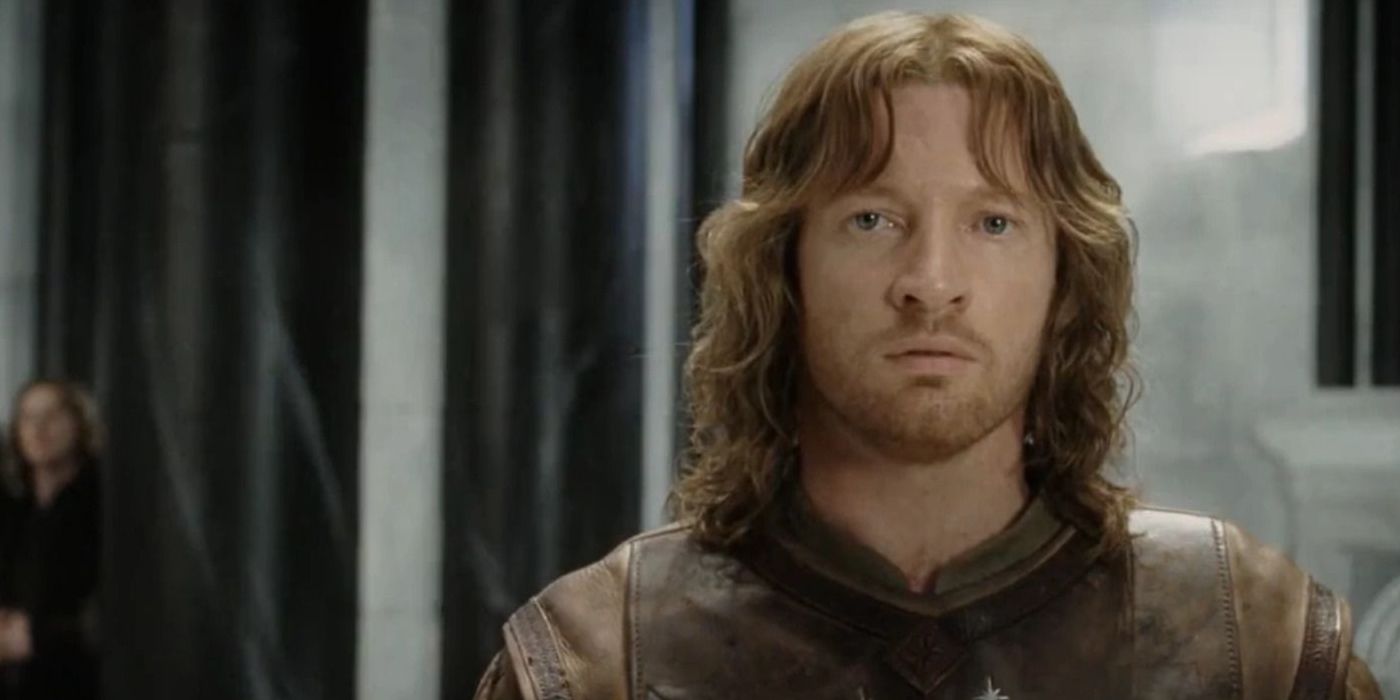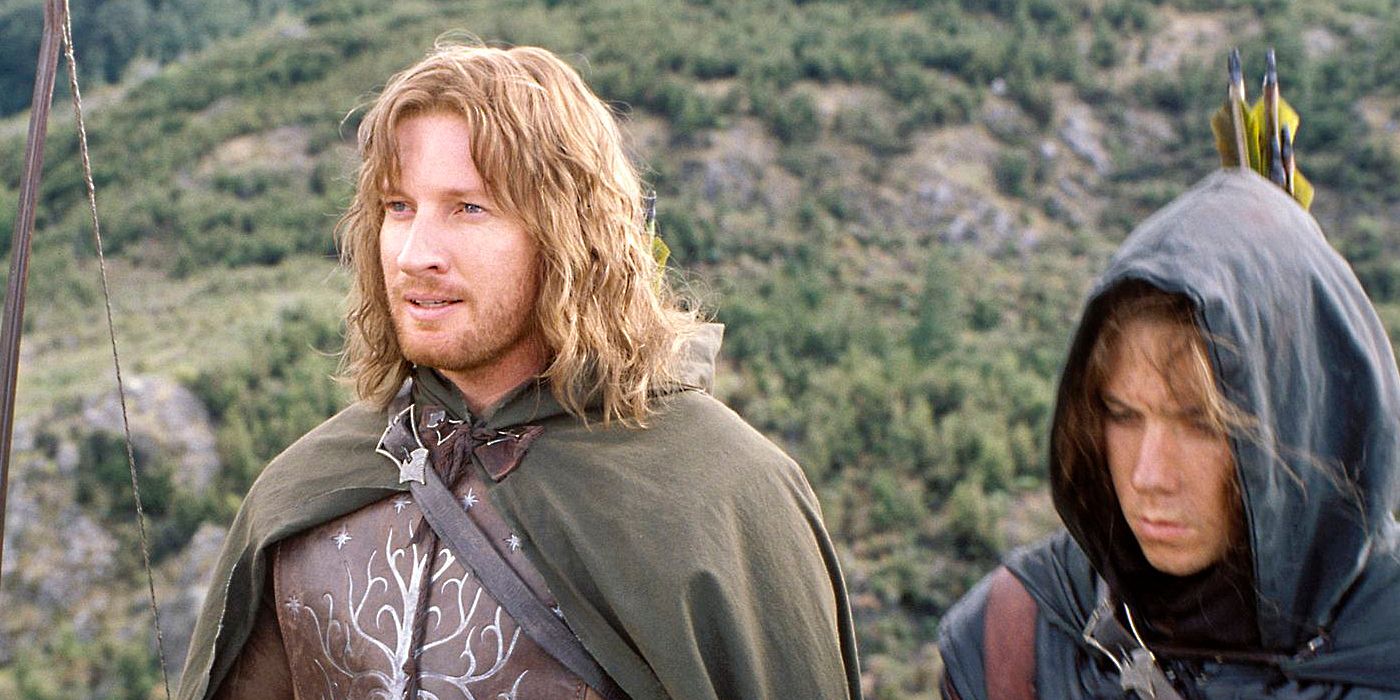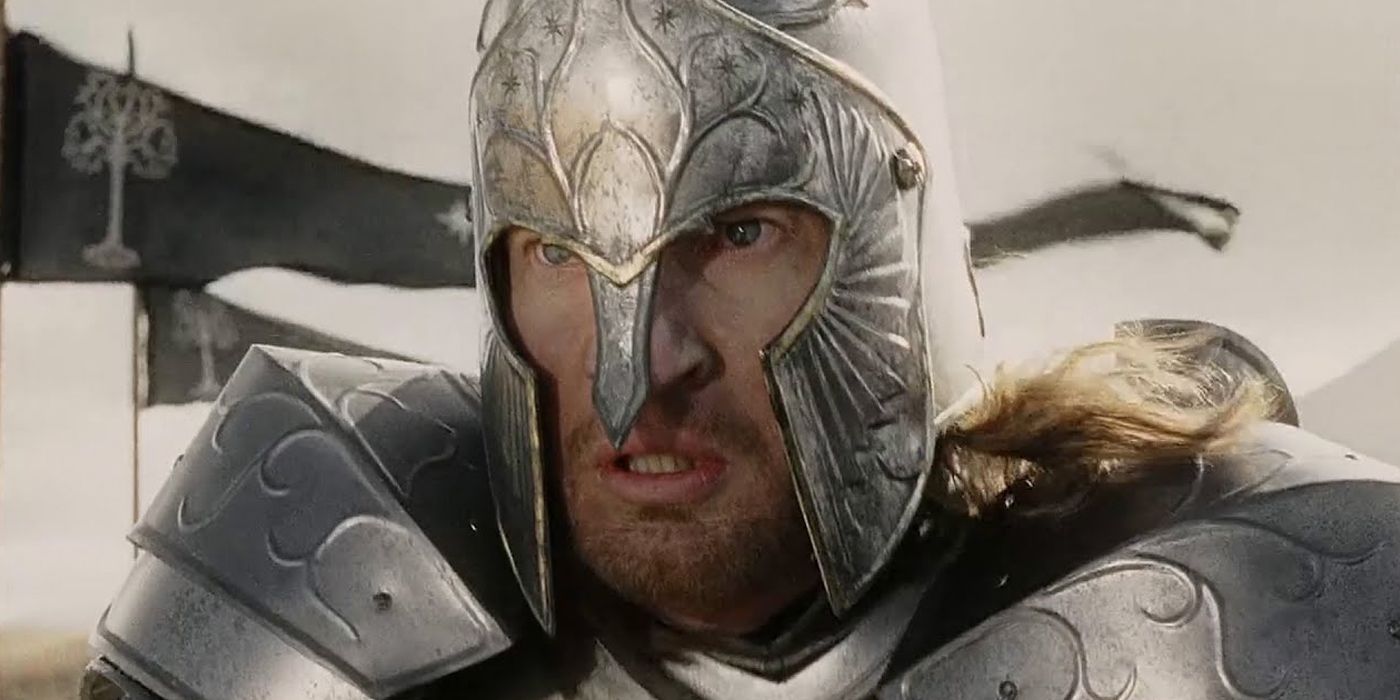Sauron's One Ring of Power tempted many beings in Middle-earth, from great guardians, like Galadriel or Gandalf, to even the weaker creatures, like Gollum. The One Ring had the power to corrupt any who touched it, infecting them with Sauron's malice, greed and lust for absolute power. However, one person in J. R. R. Tolkien's The Lord of the Rings was easily able to withstand the temptation of the Ring, even though all signs suggested otherwise.
Faramir of Gondor, second son of Denethor and younger brother of Boromir, was tempted by the ring during the film version of The Fellowship of the Ring after capturing Frodo Baggins, Sam Gamgee and Gollum. While this doesn't happen in the books, this scene doesn't actually make sense, as it would have made more sense if Faramir had taken the ring from Frodo.
It's often brought up in Middle-earth how weak the race of men are, yet Faramir seems to have little to no trouble turning down the might of the One Ring. This doesn't make sense for multiple reasons. Firstly, Faramir was always looking for the approval of his father, Denethor, who much preferred his older son Boromir, to his younger. Faramir must have known that if he returned the Ring to his father, he would have had a hand in changing Gondor's fate and would have impressed Denethor.
Secondly, him turning down the Ring means he brought Frodo and Sam to Osgiliath for no good reason. The writers who adapted Tolkien's book needed a scene to show why Faramir brought them there. If he had taken the Ring, then Osgiliath would have served its purpose. However, because Faramir didn't take the Ring, there was absolutely no reason for him to bring them there, which is why he ends up releasing them.
Story-wise, it does make sense why Faramir turns down the Ring, as it shows how good of a man he is, especially since men are apparently so easily corrupted, but Faramir stays strong and becomes a very likable character in the trilogy. Unfortunately, the whole concept of Faramir turning down the Ring, when his very brother was almost taken by it, doesn't make cohesive sense.
Faramir's deep desire to fulfill his father's expectations leads him to charge back into Osgiliath, even when he knew it would mean his certain death. If he was willing to walk into death's open arms at his father's whim, he would have certainly taken the Ring in order to help him and his country's fate. While the scene in Peter Jackson's film seems almost pointless, it does show how hard Faramir is willing to fight for what he believes to be right, and Frodo ends up saving Middle-earth because of it.



